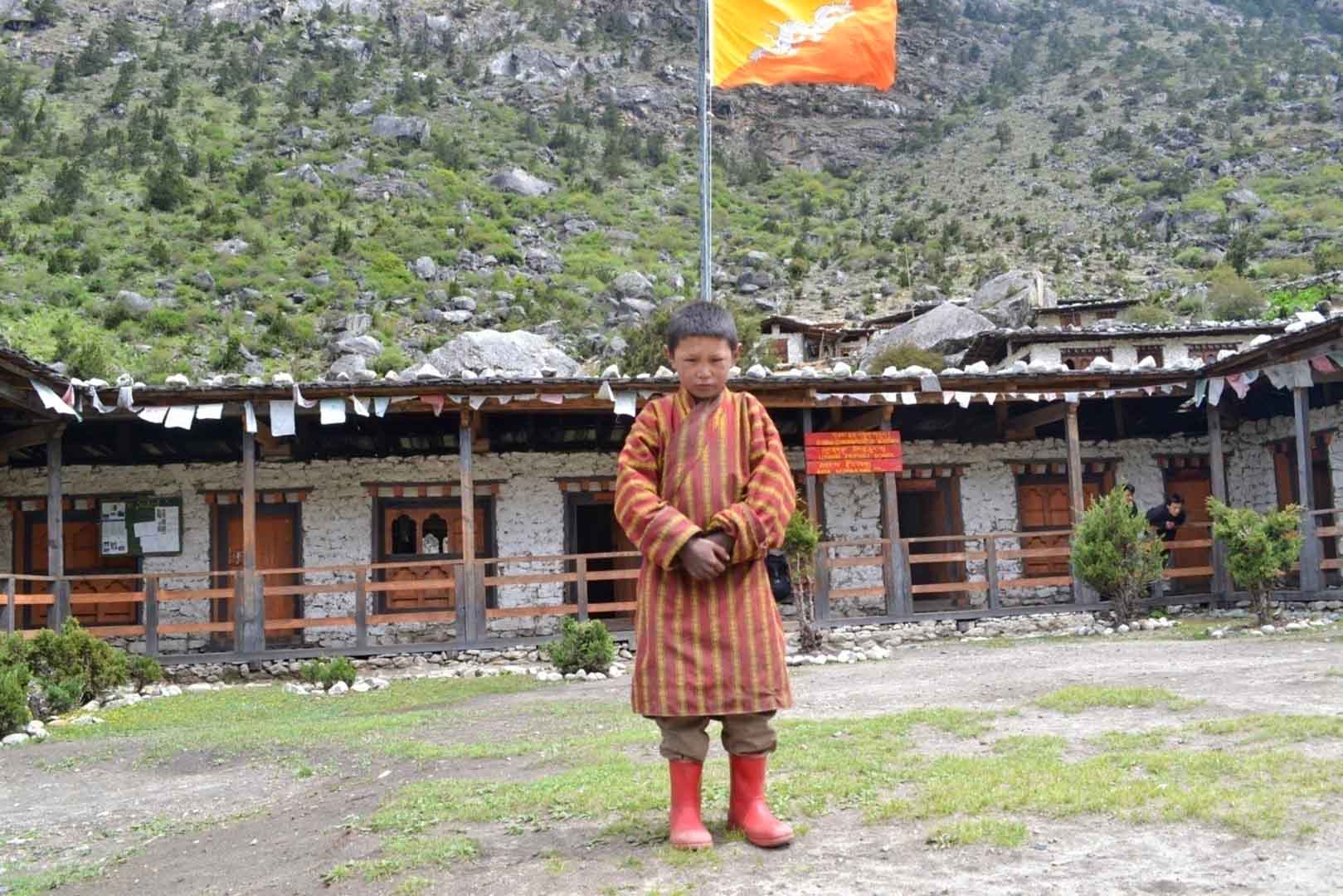Khaling Blind School

Khaling Blind School
Khaling Blind School. The records available in the institute reveal that it was purely with the personal initiative of His Royal Highness Prince Namgyel Wangchuck, the then-honourable minister of Trade Industry and Forests, that the school for the blind was established. With the royal patronage and personal care of His Royal Highness, the school remained under the administrative guidance of the ministry. There are numerous pieces of evidence that His Royal Highness spared his precious time to visit the institute several times and that Dasho Tshering Wangda, Secretary, Ministry of Home Affairs, the then P.A. and later P.S. to H.R.H. had constant contact with the school of its establishment and development during 1973 to 1983.
The initial expense of the school was financed by a Women’s Mission of Sweden, KMA, (Kwinnliga Missions Arbetare) and CBM, (Christoffel Blindenmission) now known as the Christian Blind Mission, a worldwide German Mission. The special equipment and materials required for the education of the blind were also procured with their financial assistance.
In the September of 1980, HRH Prince Namgyel Wangchuck formally named the school as Zangley Muenselling School for the Blind. In 1981, the school was officially placed under the Department of Education and the salaries of the few national teachers were offered by the Royal Government of Bhutan. While the world commemorated the year for the disabled in 1981, Bhutan too joined with a team of two students and a teacher to Japan and the rest in Thimphu. A bronze medal on typing competition was won in Japan. This was the first medal to be won by a blind student in Bhutan. By then, there were 10 boys and 2 girls.
Mr. Einar Kippenes worked till 1981 succeeded by Mr. Philip Holmberg, from Sweden, till 1986. In line with the Royal Government’s policy of nationalizing of all the heads of the schools and institutions, Late Nawang Namgyel had been entrusted the responsibility of the 3rd principal of the institute. He worked from July 1986 till December 1998. In March 1999, Mr. Karma Tshering became the 4th principal of the institute. In August 2002, the Assistant Principal, Mrs Tshering Lhamo, officiated till Mr. Tshongpen Wangdi took charge in December 2003. He worked till March 2014. On Wednesday, 2nd of April, 2014, Mr Dorji Wangdrup was replaced as the fifth principal of the institute. He joined as a new principal on Monday, 10th of March and took over the charge on 2nd of April, 2014.
By July 1989, the Royal Government of Bhutan began to allocate the annual budget covering every aspect of the institute’s expenditure. For the first time, the institute had a complete set of national staff.
In 1995, the erstwhile Zangley Muenselling School for the Blind was renamed as the National Institute for the Disabled with a definite objective of expanding the opportunities and facilities to other categories of disabilities.
In addition to the numerous developmental projects being carried out throughout the nation, the Royal Government has shown great concern for the welfare of people with disabilities. Through UNICEF, in 2000, a consultant on Special Education had been invited and the feasibilities were being explored. This marked the beginning of the launch of special education programmes in the nation.
A pilot project on the feasibility of the physically disabled in the mainstream school was launched at Changangkha Lower Secondary School in 2001. In the same year, the teaching of Orientation and Mobility and the provision of large print materials to the low-vision students began. In September 2003, education for the hearing impaired attached to Drukgyel Lower Secondary School began.
On 19th of November 2004, Her Majesty Ashi Tshering Pem Wangchuck, together with Harald N. Nestroy, Germany Ambassador (rtd) and Executive Chairman of the “GBHF -Association” of which “Pro Bhutan, Germany” Association is its legal successor, has inaugurated at MI the two new Hostels, new Kitchen and the new Dining-Hall for the Children with visual impairment.
“GBHF – Pro Bhutan, Germany” had, through her architect Fritz Baumgartner, taken over the planning, tendering, contracting and supervision of the construction of all four buildings.
The Girls’ Hostel was funded by “GBHF-“Pro Bhutan, Germany” with funds from “Star Hours – we help Children, the philanthropic NGO of the Bavarian Television, Munich, Germany”. The Kitchen with funds from “Christoffel Blinden Mission, Berlin, Germany”. The Boys’ Hostel was funded through YDF with funds from “U.S. Save the children”, the Dining-Hall was funded by RGoB.
A Braille production Unit attached to the Department of Curriculum and Research Development (DCRD) the then Curriculum and Professional Support Division (CAPSD) was set up in 2002 to cater for the needs of the visually disabled children and the teachers. This unit provides translation of materials into Braille ranging from textbooks to teaching manuals. Through the assistance of the JICA, a similar, but smaller unit has been set up in MI to cater for the needs of the local requirement. The production unit translates question papers into Braille for those who study in MI and in regular schools.
In 2005, a Resource Center funded by the Danish Association of the Blind was set up in MI to facilitate the needs of the visually impaired children of the institute and those who study in regular schools through the integration program.
For the first time, the disabled day was celebrated in Thimphu. Thanks to YDF. Ten students were selected to participate in the Bhutan Paralympics.
In 2007, through the support of the Ministry of education, funded by NORAD, the computer literacy programme began in the institute. The five projects focused on training the resource persons, setting up and furnishing the computer centre with appropriate hardware and software, bearing the expenses of the day-to-day running of the centre including the cost of the internet, development of syllabus and handbooks for teaching class I to VIII and the in-service training.
With the establishment of a school for the hearing impaired attached to Drukgyel LSS in 2003 and the inclusive education programme for SEN Children (Special educational needs) in a few dzongkhag, the staff of MI and the SEN Office of Thimphu realized the need to change the name of the institute. In March 2010, the Department of School Education (DSE) endorsed the change of the name of the National Institute for the Disabled to the National Institute for the visually impaired.
However, in 2012, it was renamed as Muenselling Institute.
On the 10th of March, 2014, the new principal, Mr. Dorji Wangdrup was welcomed to the institute. On Wednesday, 2nd of April, the institute was handed over to the new principal.
On Saturday, 25th of July, 2015, Muenselling Institute was decentralized and was handed over to the Trashigang Dzongkhag.
In 2016, Muenselling Institute became the third campus (Campus C) of Jigme Sherubling Central School.




